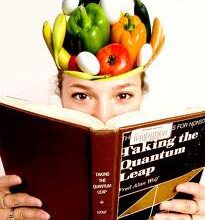If you can picture for a moment a nerve cell at the end of your finger I would like to show you what happens within the cells of your body when you do something as simple as touching your finger to your nose. Ordinarily that cell at the end of your finger doesn’t do too much. It comes to life when you touch something. That touch activates a chain of events, beginning with a release of chemicals that sparks a reaction, sending electrical impulses to another cell. That cells communicates with millions of other cells along your nervous system until the message gets to the brain cells it needs to in order to let your brain know you just touched your nose. All that for a simple gesture!
Now imagine what would have happened if the needed chemicals were not released to spark that chain of communication. That’s what would happen if your body does not have adequate potassium. Your body would not receive the signals it needs to tell your brain to eat, drink, your heart to pump, or to breathe. You will die, and all because you didn’t make sure you had one element in your system. So although I had never thought of it before, if you want to improve your memory – memory training alone may not be enough. You may need some potassium.
Potassium is one of the three most important elements in plant or animal life. It’s chemical symbol on the periodic table is “K,” and it is important for the proper functioning of every cell within your body. It helps our cells to release chemicals that allow for an electrical reaction that sparks communication between cells. It is much like an old telephone line, where one wire is connected to a pole that connects to another wire along a chain of wires until it reaches it’s final destination. That is how the lines of millions of cells within our body work to communicate with our brain.
Our bodies would rival any pharmaceutical company in the manufacturing of chemicals. We are walking chemical labs. These chemicals all have a function in helping the millions of tiny cells (such as skin cells, liver cells and brain cells) work together in cooperation. Potassium is extremely important to these cells by assisting in the communication process between cells, from any part of our body to our brains. Our heart, for instance, cannot contract normally without potassium, and it is critical for nerve and brain function. To improve your memory and brain function a great brain food is potassium!
Researchers at Sweden’s Karolinska Institute conducted 10 different medical studies that evaluated the connection between low potassium levels and stroke. Throughout this study, more than 268,000 individuals were involved. Their findings, reported in the July 2011 edition of the medical journal Stroke, concluded that for every 1,000 mg per day increase in dietary potassium, stroke risk dropped by 11%.
The element potassium is not hard to find, but our poor diets seem to still be deficient in it. The National Health and Nutrition Surveyed of over 9,000 American adults in 2008 and found that the average American woman’s diet included less than 2,300 mg of potassium daily and the average man about 3000 mg. An adequate level is considered to be about 4,700 mg. What this tells us is our regular diets are not doing an adequate job of supplying us with enough potassium to keep our brain cells, and all the cells of our body, communicating as they should.
You can find potassium in many foods:
- Fruits and vegetables supply at least 300 mg of potassium per cup.
- One big source of potassium is a banana. You can get close to 500 mg of potassium in one large banana.
- Other potassium giant suppliers are soybeans, sweet potatoes, spinach, lettuce, beans, salmon and halibut — supplying from 450-850 mg per serving.
Our kidneys regulate our potassium levels, and most of the time it does a good job. Many people take diuretics (water pills) for high blood pressure and water retention. This can cause problems for the kidneys in regulating the potassium in our bodies. Although getting the mineral through your food is the best alternative, your doctor may need to prescribe a potassium supplement and run a periodic check of your potassium levels.
As I train for the next USA Memory Championship I am adding something to my diet and that will be banana’s for their potassium and ability to improve my memory. I have already added spinach so hopefully with the spinach, blueberries and bananas I will be fully prepared to perform at my highest at the 2012 USA Memory Championship.
My name is Ron White, and I am a two-time USA Memory Champion , memory training expert, and memory keynote speaker. Keeping adequate supplies of potassium in your body will help to keep your brain sharp and functioning at it’s best. Contact your physician to make sure your potassium level is in line, and if not make sure he prescribes the correct supplement for your needs.
Source:
AARP — High Potassium Foods May Protect Your Brain: http://www.healthline.com/health-blogs/heart-smart-living/potassium
Mineral Information Institute — The role of elements in Life Process: http://www.mii.org/periodic/lifeelement.html





Comments are closed.